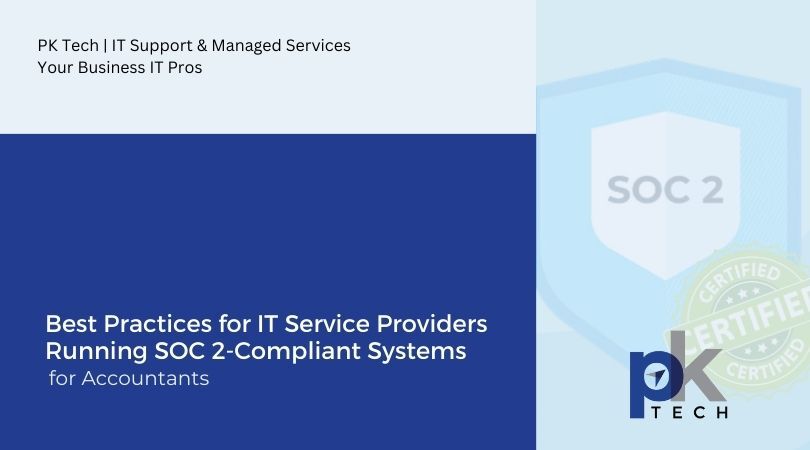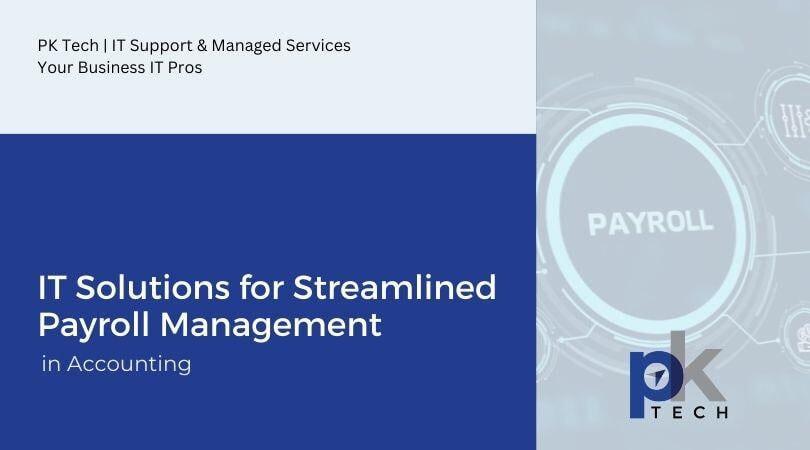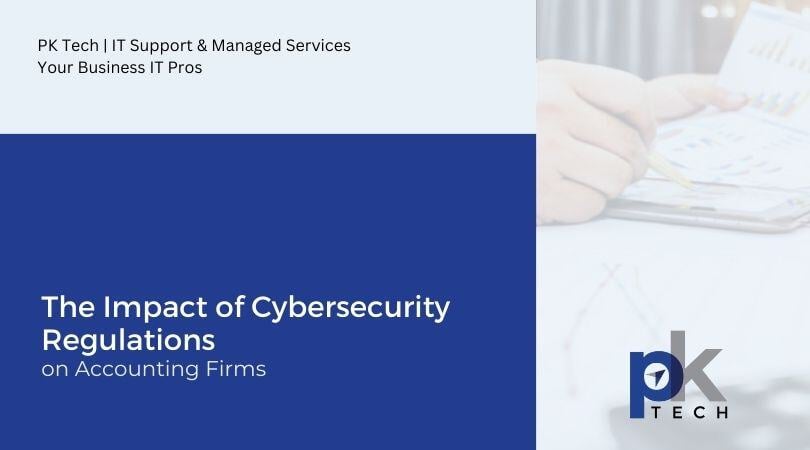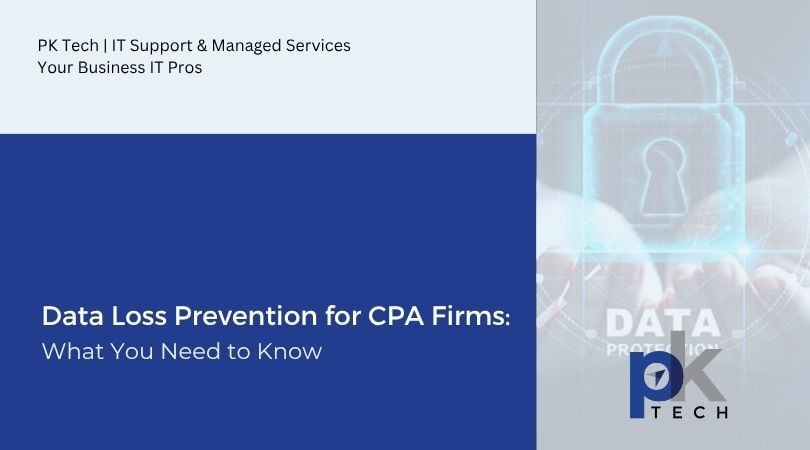IT Solutions for Streamlined Payroll Management in Accounting
Like paying your taxes, running payroll is a process almost every organization has to do. Effective payroll management is crucial for organizations...
3 min read
PK Tech : September 9, 2025

Accountants today should be considering cybersecurity infrastructure and data protection as critical as actually filing their clients’ tax returns (yes, we said it). It’s absolutely mission-critical.
As a CPA firm, you handle some of your clients' most highly sensitive financial data. That’s why it's essential to choose an IT service provider that follows strict industry standards like SOC 2 compliance.
This blog will explain SOC 2 compliance, why it matters for accounting firms, and the best practices that top-tier managed service providers (MSPs) should follow to protect your firm and your clients.
SOC 2 (System and Organization Controls 2) is an auditing framework developed by the American Institute of Certified Public Accountants (AICPA). It ensures that service providers securely manage data to protect the interests and privacy of their clients. SOC 2 compliance is based on five “Trust Services Criteria”:
For CPA firms, this means that any MSP managing your IT infrastructure should not only meet technical standards but also follow structured, independently audited processes that reduce risk. SOC 2 compliance is a strong signal that your provider takes data protection seriously and, most importantly, that they have the systems in place to back that up.
When you hire an IT service provider, you’re essentially outsourcing trust. You’re giving them access to your data, your network, and, indirectly, your clients. Without a high standard like SOC 2, here’s what you risk:
A SOC 2-compliant MSP will have already addressed these risks through documented controls, regular audits, and secure, repeatable processes. Prioritizing cybersecurity with SOC-2 compliance goes beyond basic tech standards and means the MSP emphasizes business safeguards.
Here are some key practices that any MSP serving accountants should follow if they claim SOC 2 compliance (spoiler alert — PK Tech practices what we preach!):
SOC 2-compliant MSPs enforce role-based access, ensuring that only authorized personnel can access sensitive client systems or data. For accountants, this means your clients’ financial records aren’t exposed to unnecessary risk.
Monitoring systems should be in place 24/7 to detect anomalies or threats. Equally important is having an incident response plan that outlines exactly how the provider will act if something goes wrong, minimizing downtime and data loss.
SOC 2 requires detailed documentation and annual audits. Your MSP should be able to provide audit reports that demonstrate compliance over time, giving you confidence that controls aren’t just theoretical — they’re tested.
Backups should be automated, encrypted, and stored off-site (or in secure cloud environments). This is non-negotiable in accounting, where data integrity and availability are paramount (especially during tax season).
A SOC 2-compliant MSP will have internal training programs to reduce human error and will vet their own third-party vendors for compliance. This means your provider isn’t just secure internally, they’ve also locked down their entire supply chain (if you’re wondering about the actual risk of third party vendors, we discuss how 54% of organizations were affected by third party breaches just last year).
To ensure you're hiring a truly SOC 2-compliant MSP, ask:
If an MSP can’t answer these confidently, or isn’t willing to share proof of their compliance, that’s a red flag.
As a CPA, your firm’s reputation is built on trust, confidentiality, and professionalism. Your IT service provider should reflect those same values. SOC 2 compliance isn’t just a certificate; it’s a framework for excellence in security, availability, and operational integrity.
When you choose an MSP that follows SOC 2 best practices, you’re not just buying technology. With SOC 2 compliance, you’re investing in peace of mind, risk management, and client confidence. Make sure your provider is as committed to safeguarding your data as you are.
Ready to evaluate a SOC 2-compliant IT provider for your accounting firm? As a managed IT service provider, PK Tech is proud to offer 15 years of experience with a focus on accounting firms. We boast AICPAs SOC 2 Type II attestation, proving via third-party audit by an independent CPA firm that we passed a rigorous and comprehensive assessment of our security and privacy controls. Schedule a time to talk with our team here.

Like paying your taxes, running payroll is a process almost every organization has to do. Effective payroll management is crucial for organizations...

While we’re biased given our line of work cybersecurity is undoubtedly an urgent issue for businesses across all sectors. Given its reliance on both...

Certified Public Accountant (CPA) firms handle a wide array of sensitive financial data daily — from client tax information to business financials...